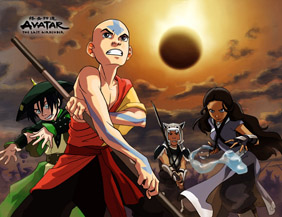|
|
MythologyBy Martin FelipeAugust 4, 2010
I plan on watching the show soon, and I'm sure I will enjoy exploring this world, so no, Shyamalan's misstep isn't going to sour me on what is, by all accounts, a rich engaging mythology. One of the great pleasures of watching these mythology shows, and movies for that matter, is immersing oneself in the fantasy world. I look forward to doing so with Avatar. Problem is, because the world isn't real, the creators must go to great lengths to establish an authenticity. All of his flaws aside, George Lucas illustrates how to do this in his original Star Wars. Much has been written about his lived-in universe. The Galaxy Far, Far Away doesn't look pristine, it doesn't look artificial. It's beat up, run down, yes, lived in. This helps to create the sense that this galaxy extends far beyond the reach of the frame we see and of the story we experience. Luke and his pals' adventures seem like just a fraction of this sweeping galactic society that we're peering into. The effect this has on the viewer is one of authenticity. We feel swept up in this grand civilization, the unknown stories we presume are happening outside of the main one helps us to take an epic about Jedi Knights and Wookiees seriously.
|

|
|
|

|
Friday, November 1, 2024
© 2024 Box Office Prophets, a division of One Of Us, Inc.


